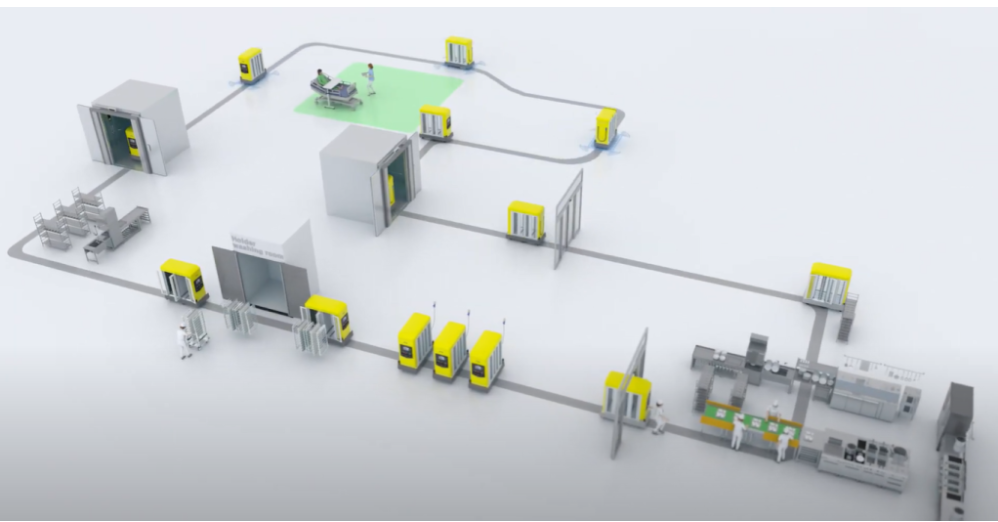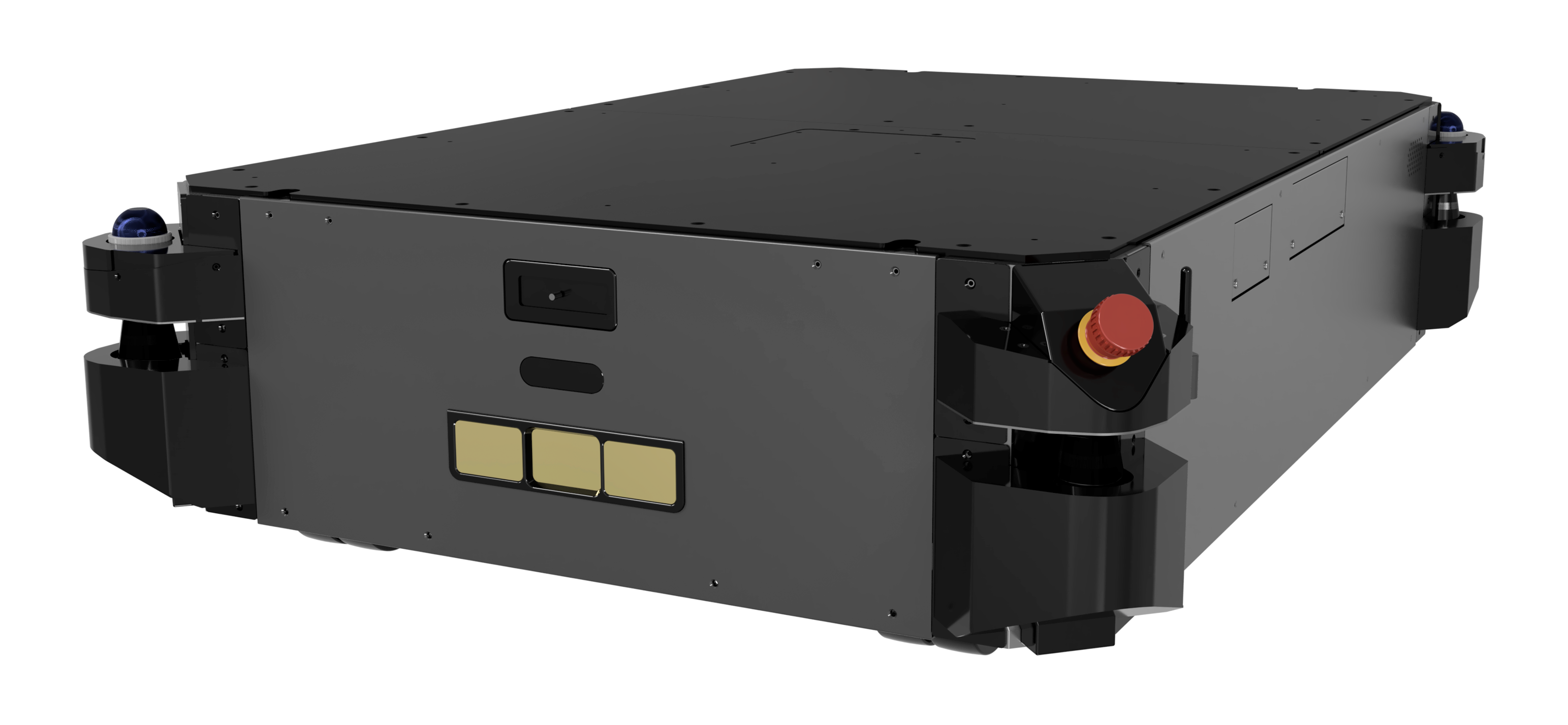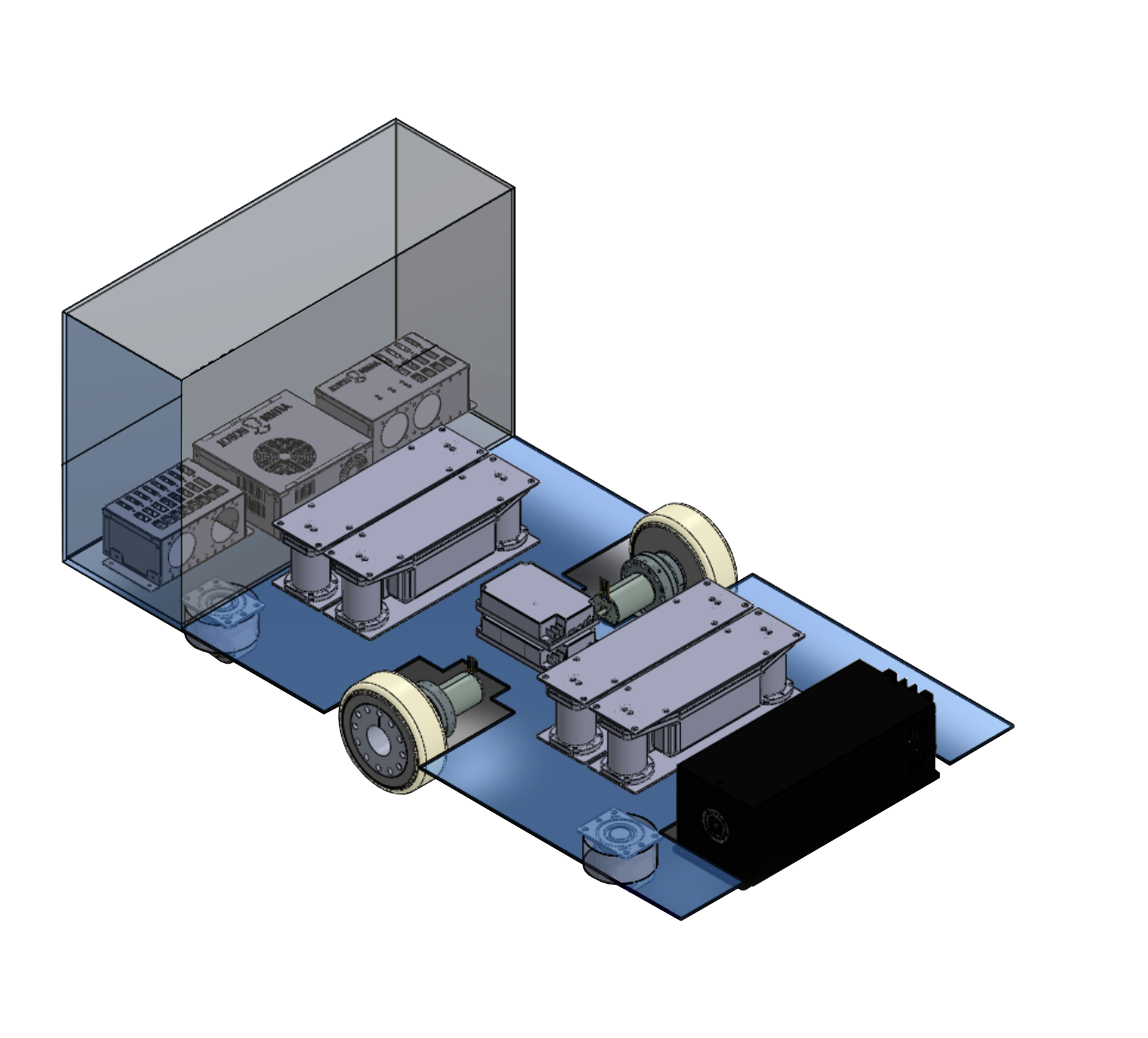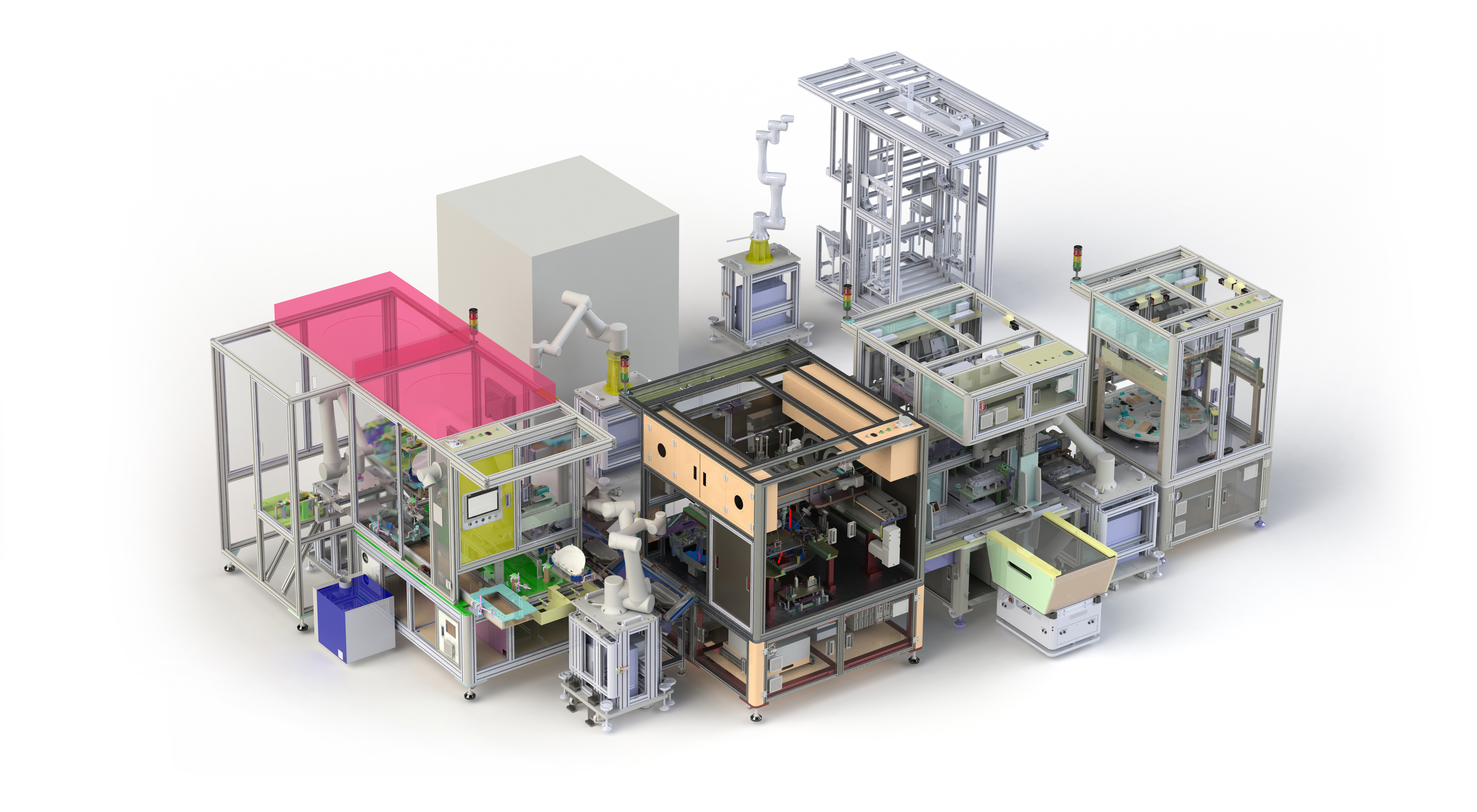The COVID-19 pandemic, and the ongoing recovery from it, continue to add to employers’ staff retention challenges. This is especially true of the material handling industry. Now, for companies involved in materials handling, adopting Autonomous Mobile Robots (AMRs) and their accessory products can make all the difference. By transitioning to an automated warehouse, companies can make their operations more efficient by automating routine tasks. That can reduce costs and time lost due to staff training and turnover and boost employee satisfaction.
The Materials Handling Industry, Post-COVID
The materials handling industry was adapting to fluctuating labor trends even before the COVID-19 pandemic. Workforces are aging, urbanization is increasing, and the rapid acceleration of e-commerce is changing the nature of the field. Then the pandemic set in, and warehouses had to adopt new standards on social distancing, sanitation and scheduling. Employment became uncertain for many in the industry, and statistics show that employment levels have not returned to their previous levels. With the lag in rehiring, employers are looking for alternatives.
Ironically, as the employment market destabilized, the need for increased efficiency in supply chains became even more obvious. The pandemic caught supply chains everywhere off guard, with only one in 10 in the industry of them reporting in a 2020 survey that they felt fully prepared for the effects from COVID-19. Even as workforce retention and recruitment became more difficult, online orders, including for people’s daily necessities, accelerated. Automation, it became clear, needs to happen at a much greater rate in order to keep companies operating at all the points in a supply chain fully functional. Far from threatening companies’ flesh-and-blood workers, the transition to an automated warehouse benefits, and supplements, those who are still working. Automation keeps inventory moving, increases workplace safety and productivity, and even reduces costs.
That’s where Autonomous Mobile Robots (AMRs) can help.
What are AMRs?
AMRs are a form of technology that can move freely and independently through their environments, particularly in carrying/transporting inventory, without requiring direction or oversight from a human operator. This is not merely a matter of programming in advance and letting the machine take its course. Thanks to a complex array of sensors and adoption of higher capacity processors, AMRs can instantly react to their environment, including dynamic obstacles.
AMRs are often compared to Automated Guided Vehicles (AGVs), which have been around since the 1950s, providing transport of goods as automatic guided carts, forklifts, towing AGVs, etc. AGVs have proven their use in moving inventory through processes such as assembly, warehousing, order picking and staging.
Yet AMRs are a more recent invention, and their capabilities are different. AGVs follow a predetermined path marked by magnetic tapes, reflectors or QR codes, vision cameras, magnets, or lasers for navigation. Useful, yes, but not particularly clever: their paths are pre-programmed, and when there is an obstacle in their paths they can only change directions if they have been preporgrammed to do so.
While “robots” have been around for decades, AMRs only recently became commercially viable and have been transforming workplaces ever since. How? Thanks to their onboard sensors and navigation capabilities, AMRs can adapt to their environments and change paths on their own, without help. Yujin’s 3D LiDAR-based core Simultaneous Localization and Mapping (SLAM) technology provides accurate real-time mapping and precise localization for smart navigation and can be easily integrated with existing equipment.
Forklift AMRs
Warehouses, including in the material handling industry, could not function without forklifts to lift, load and transport heavy materials. The COVID-19 pandemic further demonstrated the need for forklifts, as forklift operators were called upon to work longer hours under higher-stress situations in order to keep stretched supply chains in operation.
Stress, however, extends beyond the forklift operators, to management that needs to keep the forklifts, and their operators, fully functional. In addition to the costs of buying forklifts and keeping them properly serviced, forklift drivers require certification due to the dangers inherent to the job. The Federal Occupational Safety and Health Administration (OSHA) says there are approximately 85 fatalities and nearly 35,000 serious accidents each year in the United States related to forklifts.
Consequently, each forklift driver and warehouse employee can command a salary of $50,000 a year, with multiple forklift operators required to keep production going at the warehouse without delay. The loss or injury of even one qualified forklift operator in a non-automated warehouse can therefore be costly, and the costs do not stop there: the average annual rate of misplaced inventory in warehouse is 1.25%, with the financial costs borne by the companies.
Thankfully, transitioning to a fully autonomous forklift (autonomous guided forklift, or AGF) does not require that your company scrap its existing manual forklifts and replace them with new ones. A manually operated forklift can become fully autonomous when equipped with Yujin Robot’s Robotization Package. This includes 3D LiDAR, SLAM technology, navigation, functional safety software and required sensor attachments, in addition to retrofitting the hardware.
Once appropriately equipped, the newly autonomous forklift will be able to navigate your company’s warehouse — no human intervention, forklift certification or on-the-job training required. Employers need not worry about lost days due to illness or injury in the midst of this pandemic (or future ones), about the possibility of accidents or even deaths occurring on the job, about the costs or time lost due to the need to train staff or the need to hire a new employee. Fully automated forklifts can also reduce costs associated with lost inventory.
And your employees will thank you as well for increasing workplace safety and relieving them of some of the more routine aspects of the job.
GoCart
Yujin’s GoCart is another example of an AMR to complete your automated warehouse. Also equipped with 3D ToF LiDAR-based SLAM and intelligent navigation technologies, the GoCart is designed for uses such as in logistics and material transport. GoCarts will not require a major overhaul of your company or its facilities, as their size (730 mm x 525 mm x 420 mm for the GoCart 180 and 924 mm x 724 mm x 420 mm for the GoCart 250) makes it easily integrated into your workplace, including busy and narrow spaces.
While useful in a variety of settings — including factories and healthcare facilities — the GoCart’s size and maneuverability make it ideal for delivery of your warehouse’s pallets, boxes and other individual items. Furthermore, GoCart can be fitted with custom top modules, including lifts, conveyors and manipulators, allowing it to perform any number of applications, including lifting heavy objects like shelves or pallets that would otherwise have to be handled by employees. Using Yujin’s Fleet Management System (FMS) allows you to manage and monitor a single or a multi-robot GoCart system in your warehouse to boost productivity.
Post-COVID-19, experts and businesses agree that automation is the future of the material handling industry, and that it needs to happen at a faster rate. Adapting Yujin’s AMRs, including features such as the GoCart, 3D LiDAR, navigation controller, sensors and SLAM systems for your automated forklift, will take your warehouse to the front of the pack.






















